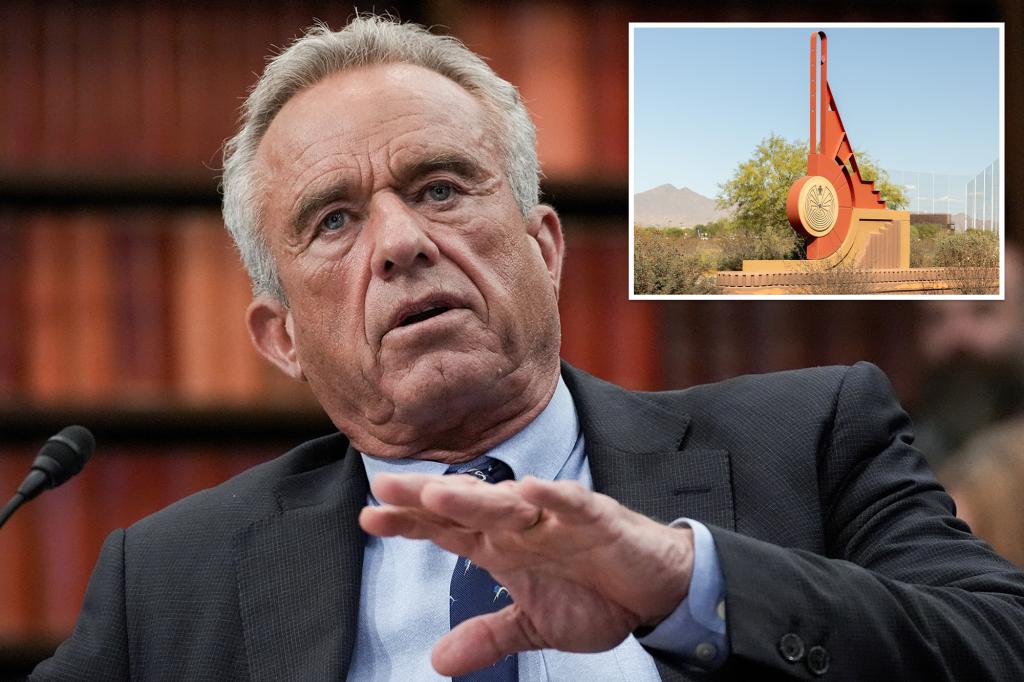RFK Jr. Calls Ultra-Processed Foods a ‘Genocide’ Against Native Americans
Robert F. Kennedy Jr. has ignited a national debate by labeling ultra-processed foods as a form of “genocide” targeting Native American communities. Speaking at a public health conference last week, the environmental lawyer and presidential candidate argued that corporate food systems disproportionately harm Indigenous populations through diabetes, obesity, and cultural erosion. His remarks come as studies reveal Native Americans experience diet-related diseases at three times the national average.
The Health Crisis in Native Communities
Kennedy’s controversial statement draws attention to alarming health disparities. According to CDC data, 48% of Native American adults suffer from obesity compared to 32% of white Americans. Diabetes rates are even more staggering:
- 14.5% of Native Americans have diabetes versus 7.4% of non-Hispanic whites
- Life expectancy on some reservations is 20 years below the national average
- Heart disease mortality rates are 50% higher than other racial groups
“When you replace traditional diets with Cheetos and Mountain Dew, you’re not just changing eating habits—you’re erasing cultures and shortening lifespans,” Kennedy asserted during his speech. He specifically criticized government food programs like the USDA’s Commodity Supplemental Food Program, which historically distributed processed cheese, canned meats, and refined grains to reservations.
Food Sovereignty Advocates Weigh In
Dr. Twyla Baker, president of Nueta Hidatsa Sahnish College and member of the Mandan, Hidatsa, and Arikara Nation, supports Kennedy’s broader message: “The data doesn’t lie. Since the introduction of processed foods through federal programs in the 1950s, we’ve seen generational health collapses. Traditional foods like bison, wild rice, and squash sustained us for millennia—now they’re economically inaccessible to many.”
However, some nutrition experts caution against oversimplification. Dr. Mark Hyman, director of the Cleveland Clinic’s Center for Functional Medicine, notes: “While processed foods absolutely contribute to health disparities, we must also address systemic issues—food deserts, poverty, and intergenerational trauma—that limit access to healthier options.”
The Corporate Food System Under Scrutiny
Kennedy’s comments have refocused attention on how multinational food corporations market to vulnerable populations. A 2023 University of Washington study found:
- Reservation convenience stores stock 78% ultra-processed items versus 52% in urban stores
- Native youth see 3x more junk food ads than the general population
- SNAP (food stamp) dollars buy 25% less fresh produce on reservations than in cities
Major food manufacturers dispute these claims. A spokesperson for the Consumer Brands Association stated: “Our members provide affordable, safe food options while supporting nutrition education programs. We reject any suggestion of intentional harm.”
Grassroots Solutions Gain Momentum
Across Indian Country, food sovereignty movements are reclaiming traditional diets:
- The Navajo Nation recently banned junk food sales in chapter houses
- The Sioux Chef’s Indigenous Kitchen restaurant group has expanded to five locations
- 32 tribes now operate USDA-funded food hubs for local produce distribution
Winona LaDuke, executive director of Honor the Earth, emphasizes: “This isn’t about going backward—it’s about combining ancestral wisdom with modern science. When we revived wild rice cultivation, diabetes rates dropped in our community within two years.”
Policy Changes on the Horizon?
The Biden administration has proposed $1 billion for tribal food systems in the upcoming Farm Bill. Potential measures include:
- Expanding Indigenous food procurement for school lunches
- Creating tax incentives for tribally-owned grocery stores
- Funding mobile markets for remote reservations
As the debate continues, Kennedy plans to introduce legislation mandating warning labels on ultra-processed foods. Whether his inflammatory language helps or hinders progress remains hotly contested among policymakers.
The Road Ahead for Food Justice
This controversy highlights broader questions about corporate responsibility and cultural preservation. With Native Americans 40% more likely to lack reliable access to affordable nutritious food (per USDA data), solutions must address both immediate needs and historical injustices.
For readers seeking to support change, consider donating to the Native American Food Sovereignty Alliance or advocating for tribal amendments to the Farm Bill. As Dr. Baker concludes: “Food is medicine—and right now, our communities need intensive care.”
See more WebMD Network



